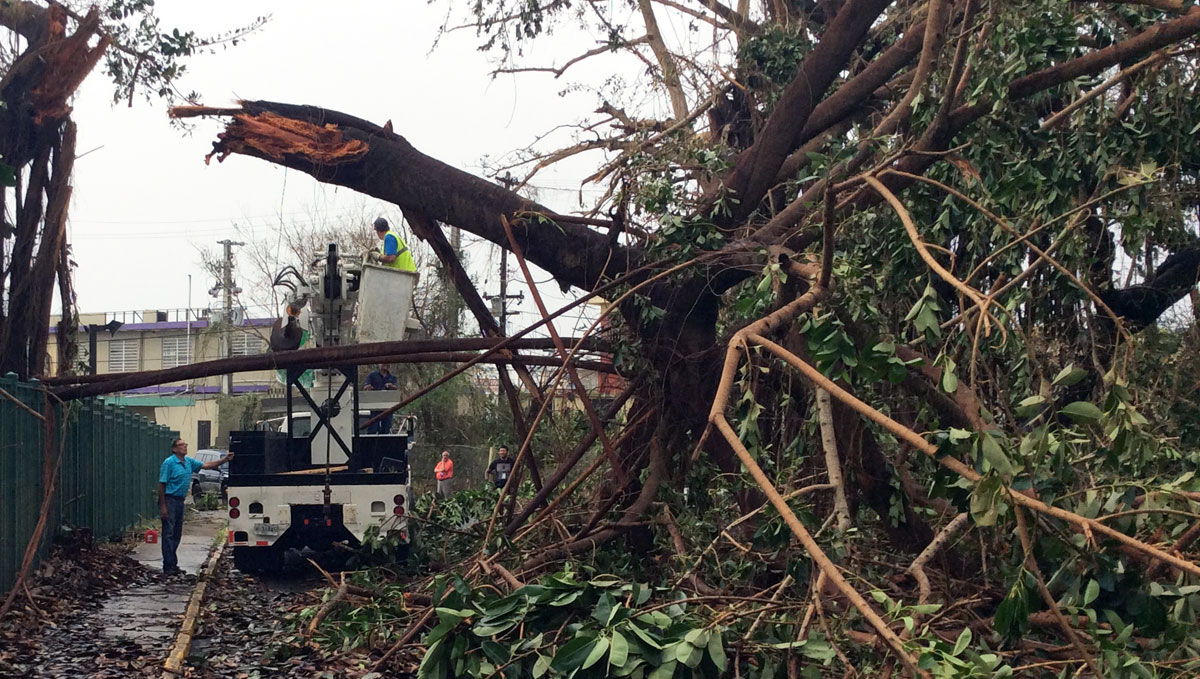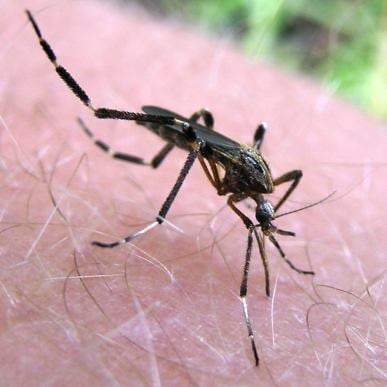Key points
- Adult mosquitoes do not generally survive high winds during a hurricane.
- Immediately after a hurricane, nuisance mosquitoes hatch.
- Prevent mosquito bites by using insect repellent, wearing proper clothing, and wearing permethrin-treated clothing.
- Control mosquitoes by removing standing water.
- Use window and door screens or air conditioning when possible.

What you need to know
About nuisance mosquitoes
Flooding caused by hurricanes can be severe. An increase in nuisance or floodwater mosquito populations is expected in the weeks after flooding.
- In general, nuisance mosquitoes do not spread germs (viruses) that can make people sick.
- An increase in the number of people getting sick from germs spread by mosquitoes is not expected after flooding.
- Immediately following a hurricane, flooding occurs.
- Mosquito eggs laid in the soil by floodwater mosquitoes during previous floods hatch.
- This results in very large populations of floodwater mosquitoes.
- Most of these mosquitoes are considered nuisance mosquitoes.
- Mosquito eggs laid in the soil by floodwater mosquitoes during previous floods hatch.
- Large numbers of floodwater mosquitoes can slow recovery efforts by making work outdoors difficult.
- Mosquito control professionals may use insecticides to reduce numbers of mosquitoes in affected areas.
- State and local health officials can request technical assistance from CDC to monitor the flooding situation.

Sean McCann
About mosquitoes that spread germs
- The types of mosquitoes that can spread viruses may increase 2 weeks after a hurricane.
- These mosquitoes can increase in areas that did not flood but received more rainfall than usual.
- It can take several more weeks before mosquitoes could start spreading viruses to people.
- Increased rainfall may result in increased hatching of mosquito eggs.
- These mosquitoes can increase in areas that did not flood but received more rainfall than usual.
- In areas with ongoing spread of viruses like dengue and West Nile, you may be at increased risk of getting infected.
Protect yourself and your family from mosquito bites
People spend more time outside cleaning up after a hurricane or flood. They are more likely to be bitten by nuisance mosquitoes. These mosquitoes generally don’t spread viruses, but they can be aggressive biters. Take steps to protect yourself and your family:
Take care of bites
- Some people may react more strongly to bites.
- Take steps to reduce swollen and itchy mosquito bites.
- See a healthcare provider if symptoms worsen.
What to do afterwards
After a hurricane or flood, a local mosquito control district or program may take steps to reduce the mosquito population. Mosquito control efforts and capabilities vary across the United States. Once flooding recedes, residents can take steps to help control mosquitoes in and around their homes to prevent mosquito bites.
- Install or repair and use window and door screens.
- Do not leave doors, including garage doors, propped open.
- Use air conditioning when possible.
Remove standing water where mosquitoes lay eggs
Resources
- AMCA. 2022. Mosquito Management During a Public Health Emergency [PDF – 43 pages]. American Mosquito Control Association. Sacramento, CA
- Mosquito Control and Natural Disasters, J Am Mosq Control Assoc. 2020;36(2s).
- Lehman JA, Hinckley AF, Kniss KL, Nasci RS, Smith TL, Campbell GL, et al. Effect of Hurricane Katrina on arboviral disease transmission [letter to editor]. Emerg Infect Dis. 2007;13(8):1273-75.
- Nasci RS, Moore CG. Vector-borne disease surveillance and natural disasters [commentary]. Emerg Infect Dis. 1998;4(2):333-34.
